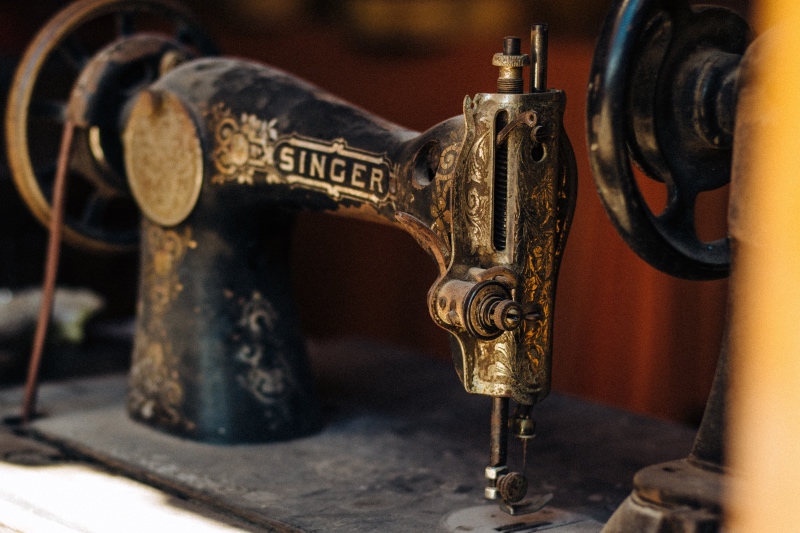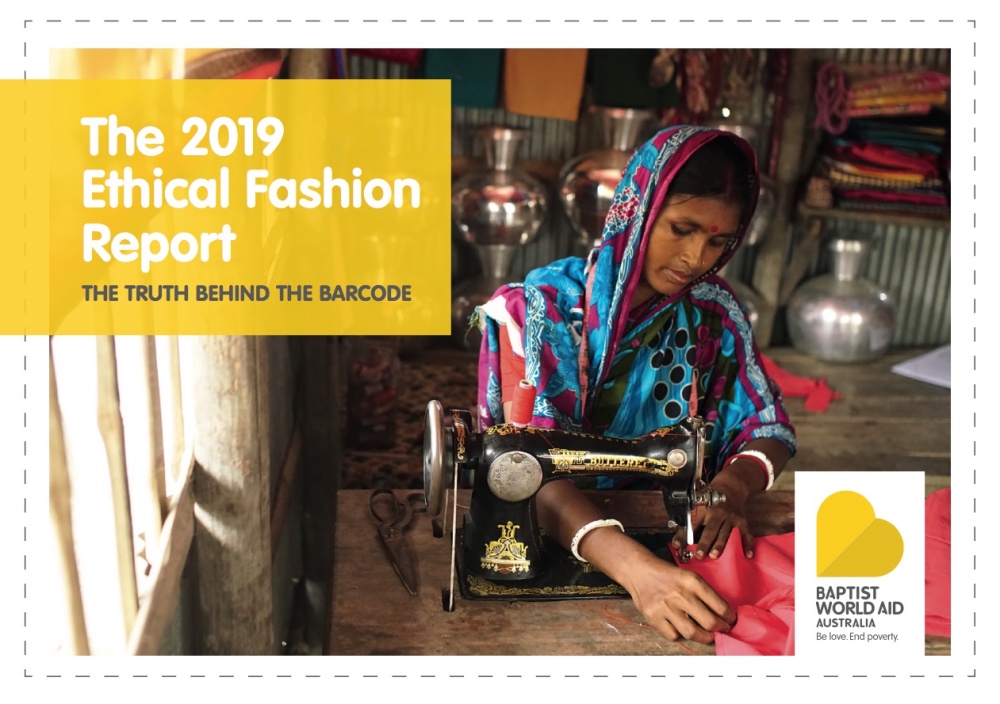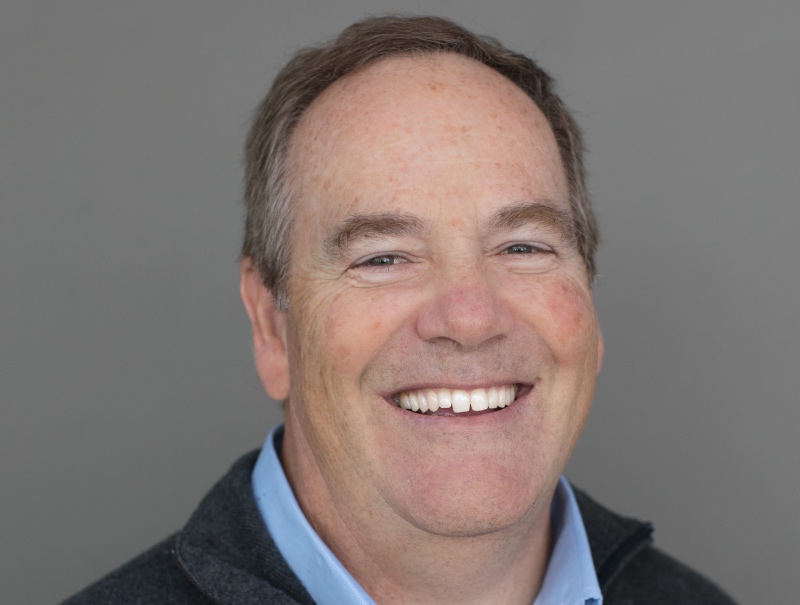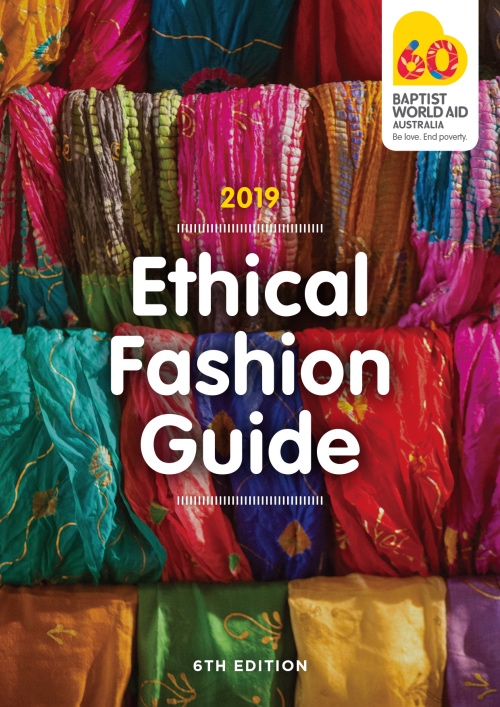
DAVID ADAMS reports on the findings of the seventh annual Ethical Fashion Report from Baptist World Aid Australia…
Australian-based fashion brands are increasingly responding to pressure aimed at ensuring supply chain workers have access to basic human rights and a working wage.
That’s according to the findings of the latest Ethical Fashion Report, released this week, which shows that more than 38 per cent of the 130 apparel companies featured in the report improved their grading over the past year, including making the most substantial progress in traceability down the supply chain that has been seen since the first report was launched in 2013.

This year’s report, which is compiled annually by Baptist World Aid Australia and grades companies according to what systems and strategies they have in place to ensure supply chain workers are protected from exploitation, shows that the overall median grade for companies was C+.
More than 20 companies – including well-known brands Adidas, Cotton On, Kathmandu, Industrie and Outland Denim – received an overall grade of A, A+ or A- while 17 received an F (each of these companies was non-responsive to requests for information but not all companies that failed to respond did receive an F).

“Whilst we see improvements in many companies, out of the 130 there was still 34 companies that rated from D+ down to F. And virtually all of those companies – it’s not like they’re specifically doing damage in the supply chain, we just don’t know. They’re not transparent, they’re not telling us or they’re not sharing publicly enough of what’s going on with their whole supply chain practices.”
– John Hickey, CEO of Baptist World Aid Australia
Key areas of improvement over the year include 22 per cent more companies addressing the issue of child and forced labour, 17 per cent more companies investing in responsible purchasing practices, and 15 per cent more companies investing in gender equality in their supply chain.
But the report did also show that only five per cent of companies are able to demonstrate they are paying a living wage to workers in the final stage of production and that, thanks to the first time inclusion of an assessment of what companies are doing to mitigate the effects of their environmental impact, only 12 per cent of companies are monitoring wastewater from wet-processing facilities to ensure it isn’t environmentally hazardous.
John Hickey, CEO of Baptist World Aid Australia, says that as well as the improved grades seen since 2013 when the first report was compiled, there has been rising participation in the reporting process from about 25 per cent of companies featured in the 2013 report to 75 per cent in this year’s.
But as well as the greater involvement of companies, he says the report was also receiving “much greater engagement” from consumers. People are, he says, “really being more concerned about shopping ethically, knowing that if they’re purchasing something, it’s not doing potential harm in terms of any exploitation of workers, particularly child workers, in the supply chain.” He notes that last year’s report, for example, was downloaded 50,000 times.
But he adds that despite all the gains in terms of both consumer awareness and company action, there is still a “distance to go”.
“Whilst we see improvements in many companies, out of the 130 there were still 34 companies that rated from D+ down to F,” he says. “And virtually all of those companies – it’s not like they’re specifically doing damage in the supply chain, we just don’t know. They’re not transparent, they’re not telling us or they’re not sharing publicly enough of what’s going on with their whole supply chain practices.”
Companies that were non-responsive to requests for information from the report’s researchers had the option to include a statement about their lack of response. Ten companies did so.

The 2019 Ethical Fashion Guide aims to help shoppers while in store.
Hickey says the report was undertaken in a “collaborative approach”.
“Our goal is not to just stand on the sidelines and provide a score and point fingers. We’re actively engaged with the industry and individual companies across each year, facilitating, discussing how to work together towards better results for vulnerable people in the supply chain. So I think we have a strong overall reputation now.”
He believes the enactment of the Modern Slavery Act in Australia in January also added to the push towards transparency in supply chains. But he notes that while, Baptist World Aid Australia was among organisations which had lobbied for a lower benchmark, the terms of the act only apply to companies with a consolidated revenue of more than $A100 million.
It’s estimated that there are at least 43 million people working in the fashion industry supply chain in the Asia-Pacific region alone, many of them in developing countries, and Hickey says that protecting them from exploitation is “fundamentally important”.
“But it’s not just that 43 million people, it’s their families, it’s their wider communities,” he says. “And if you’ve got people that are, for example, not being paid a living wage so they can’t afford all their food, they can’t afford education for their kids, they can’t afford decent accommodation…and medical support, that has a massive knock-on effect.
“And then, in terms of workers rights if people are being worked to the point where they’re getting injuries and they’re not allowed reasonable free time and so on, what you’re seeing is people being burnt out…That also affects the livelihoods and the futures of the families.”
While the report has been released with the sixth edition of a pocket-sized shopping guide to the gradings, this year it’s also being released with the End Poverty App through which the key data can also be accessed.
Hickey says that while reports such as this are helping to bring about some changes in the countries where supply chain workers live, he believes momentum for broader change is gathering.
“Probably in the years ahead we’re going to see a much more rapid step-up in change on the ground,” he says.
Head to https://baptistworldaid.org.au/resources/2019-ethical-fashion-guide/ to read the report, download the accompanying Ethical Fashion Guide or the End Poverty app.





